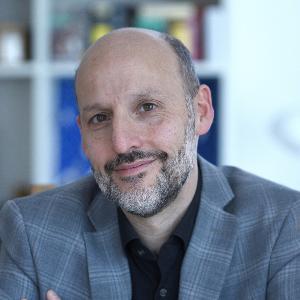Prof. Dr. Peter Adamson
Lehrstuhlinhaber
Lehrstuhl für Spätantike und Arabische Philosophie
Sprechstunde:
während des Semesters:
Montag Nachmittag 13:00-16:00 Uhr (nach Voranmeldung per E-Mail)
Postanschrift:
Geschwister-Scholl-Platz 1
80539 München

Lehrstuhlinhaber
Lehrstuhl für Spätantike und Arabische Philosophie
Sprechstunde:
während des Semesters:
Montag Nachmittag 13:00-16:00 Uhr (nach Voranmeldung per E-Mail)
Postanschrift:
Geschwister-Scholl-Platz 1
80539 München

Peter Adamson hat als Forschungsschwerpunkt Philosophie der Spätantike und der arabischen Tradition. Seine Monographien befassen sich mit der arabischen Version Plotins, al-Kindī, al-Rāzī, und Autorität in der mittelalterlichen Philosophie. Aufsätze hat er über die folgenden griechischen Autoren geschrieben: Aristoteles, Alexander von Aphrodisias, Plotin, Porphyrios, Proklos, Damaskios; und in der arabischen Tradition u.a. al-Kindī, Abū Bakr al-Rāzī, al-Fārābī, Yahya Ibn ʿAdī, Miskawayh, Ibn Sīnā (Avicenna), Ibn Rushd (Averroes), Fakhr al-Dīn al-Rāzī, und Ibn Khaldūn. Er hat mehrere Bücher herausgegeben und mitherausgegeben, darunter The Cambridge Companion to Arabic Philosophy, drei weitere Bände über Philosophie in der islamischen Welt für das Warburg Institute und Interpreting Avicenna: Critical Essays für Cambridge University Press. Seit 2012 hat Prof. Adamson noch eine Teil-Professur an King's College London, wo er von 2000-2012 in vollzeit tätig war. Er produziert auch den "History of Philosophy podcast", der als Buchreihe bei Oxford University Press erscheint.